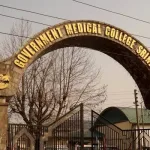Tuberculosis (TB) is a contagious bacterial infection caused by the bacterium Mycobacterium tuberculosis. It primarily affects the lungs but can also affect other parts of the body, such as the kidneys, spine, and brain. TB is spread through the air when an infected person coughs or sneezes and the bacteria are inhaled by another person.
Symptoms of tuberculosis (TB) can vary depending on which part of the body is affected, but the most common symptom is a persistent cough that lasts for several weeks or months. Other symptoms may include: fever, night sweats, weight loss, and fatigue. TB can be diagnosed through a variety of tests, including a chest X-ray, sputum test, or a skin test called a Mantoux test. In some cases, TB can also affect other parts of the body, such as the kidneys, spine, or brain, causing symptoms such as back pain, joint pain, or headaches.
Treatment for TB usually involves a combination of antibiotics taken for several months. It is important to complete the full course of treatment to ensure that all of the bacteria are eliminated from the body and to prevent the development of drug-resistant strains of TB.
TB is a serious public health concern, particularly in countries with limited resources and inadequate healthcare systems. However, with proper diagnosis and treatment, most people with TB can be cured. Preventative measures, such as vaccination, can also help to reduce the spread of TB.
Preventive measures for TB include
- TB vaccine: The Bacille Calmette-Guerin (BCG) vaccine can provide some protection against TB, particularly in children. However, the vaccine is not always effective and is not widely used in the United States.
- Avoiding exposure: TB is spread through the air when an infected person coughs or sneezes. To avoid exposure, stay away from people who have active TB disease, particularly in enclosed spaces.
- Proper ventilation: Good ventilation can help to reduce the spread of TB, particularly in crowded or poorly ventilated spaces.
- Covering your mouth: Covering your mouth when you cough or sneeze can help to reduce the spread of TB.
- Early diagnosis and treatment: If you have been exposed to TB, it is important to get tested and treated early to prevent the disease from spreading to others.
- Completing treatment: If you have been diagnosed with TB, it is important to complete the full course of treatment as prescribed, even if you start to feel better before the medication is finished. This can help to ensure that all of the bacteria are eliminated from your body and reduce the risk of drug-resistant TB.
The treatment of tuberculosis (TB) typically involves a combination of several different antibiotics taken over a period of six to nine months. The specific drugs used will depend on the severity of the infection and the drug resistance of the bacteria. The most commonly used antibiotics for TB treatment include: Isoniazid (INH), Rifampin (RIF), Ethambutol (EMB), Pyrazinamide (PZA). The treatment regimen usually involves a combination of these drugs taken for two months, followed by a period of four to seven months of treatment with INH and RIF.
It is important to take all of the medication as prescribed, even if you start to feel better before the medication is finished. Failure to complete the full course of treatment can result in the development of drug-resistant TB, which is much more difficult to treat. In addition to medication, people with TB may also require supportive care to manage their symptoms and improve their overall health. This may include adequate nutrition, rest, and other medical interventions as necessary.
Regular monitoring is also necessary during TB treatment to ensure that the drugs are working effectively and to monitor for any potential side effects. Follow-up testing is usually done after completion of the treatment to confirm that the TB has been cured.
World Tuberculosis Day is observed annually on March 24th to raise awareness about the devastating health, social, and economic consequences of tuberculosis, and to accelerate efforts to end the global TB epidemic.On this day, people around the world come together to raise awareness about TB and to promote efforts to prevent, diagnose, and treat the disease.
The World Health Organization (WHO), along with its partners and stakeholders, organize events and campaigns around the world to mark the day. These events will include awareness-raising activities, advocacy campaigns, and community outreach programs, among others.
World TB Day 2023 will be an opportunity to highlight the progress that has been made in the fight against TB, as well as the challenges that still need to be addressed. It is also a chance to mobilize political and social support for TB prevention and control, and to ensure that everyone has access to the tools and resources needed to protect themselves and their communities from this deadly disease.
Here are some estimated facts and figures related to tuberculosis (TB):
- TB is one of the top 10 causes of death worldwide, and the leading cause of death from a single infectious agent.
- In 2020, an estimated 10 million people developed TB worldwide, and 1.5 million people died from the disease.
- TB is most common in low- and middle-income countries, but it also affects people in high-income countries.
- TB can affect people of all ages, but it is most common among adults aged 15-49 years.
- TB is a major cause of morbidity and mortality among people living with HIV, and HIV is a significant risk factor for developing TB.
- Drug-resistant TB is a growing global threat, with an estimated 465,000 cases of multidrug-resistant TB (MDR-TB) worldwide in 2020.
- The COVID-19 pandemic has disrupted TB services and is likely to lead to an increase in TB deaths and cases.
- The World Health Organization has set a goal of ending the global TB epidemic by 2030 through a comprehensive strategy known as the End TB Strategy.
- TB is curable with proper treatment, but many people do not have access to the care and services they need.
- Efforts to prevent, diagnose, and treat TB require strong political commitment, increased funding, and a collaborative global response.
India is one of the countries with the highest burden of tuberculosis (TB) in the world accounting for about a quarter of the world’s TB cases. The problem of TB in India is complex and multifaceted, with several challenges that need to be addressed to control and prevent the disease. According to the World Health Organization (WHO), India had an estimated 2.6 million cases of TB in 2020, which is the highest number of TB cases in any country. The Indian government has taken steps to address the TB epidemic, including increasing funding for TB prevention and control, expanding access to TB testing and treatment, and launching a national program to eliminate TB by 2025.
Despite these efforts, there are still challenges in TB control in India. These include:
- High burden of TB: India has the highest burden of TB in the world, with an estimated 2.6 million cases in 2020. This high burden of TB is due to several factors, including poverty, malnutrition, overcrowding, and a high prevalence of HIV.
- Drug-resistant TB: India also has a high burden of drug-resistant TB, including multidrug-resistant TB (MDR-TB) and extensively drug-resistant TB (XDR-TB). Drug-resistant TB is more difficult to treat and can be more costly, making it a significant challenge for TB control in India.
- Delayed diagnosis and treatment: Many TB cases in India are not diagnosed until they are at an advanced stage, which can make the disease harder to treat and increase the risk of transmission to others. There are several reasons for delayed diagnosis and treatment, including a lack of awareness about TB, inadequate diagnostic tools, and limited access to care.
- Stigma and discrimination: TB is still associated with a stigma in some communities, which can prevent people from seeking care and treatment. This can lead to delays in diagnosis and treatment, as well as a lack of support for people living with TB.
- Limited access to care: Many people in India, particularly those in rural and remote areas, do not have access to healthcare facilities that can provide TB diagnosis and treatment. This can lead to underreporting of TB cases and a lack of access to appropriate care.
- Efforts are underway in India to address these challenges and improve TB control, including increasing awareness about TB, improving access to care, expanding TB testing and treatment, and investing in research and development of new TB drugs and vaccines. However, there is still a long way to go to eliminate TB in India.
World Tuberculosis Day 2023, with the theme ‘Yes! We can end TB!’, aims to inspire hope and encourage high-level leadership, increased investments, faster uptake of new WHO recommendations, adoption of innovations, accelerated action, and multisectoral collaboration to combat the TB epidemic. This year is critical, with opportunities to raise visibility and political commitment at the 2023 UN High-Level Meeting on TB. The spotlight of World TB Day will be on urging countries to ramp up progress in the lead-up to the 2023 UN High-Level Meeting on TB. WHO will also issue a call to action with partners urging Member States to accelerate the rollout of the new WHO-recommended shorter all-oral treatment regimens for drug-resistant TB. World TB Day is observed annually on March 24 to raise awareness about TB and efforts to end the global epidemic, marking the day in 1882 when the bacterium causing TB was discovered.
(The Author is Nursing Research Scholar, Nambla Uri. Email: [email protected])





